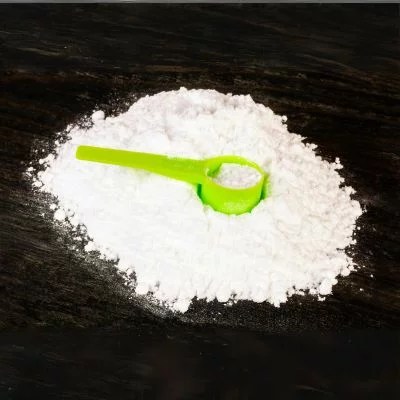Unveiling the Mystery of Creatine Kinase
Welcome to Super Achiever Club, the nexus of self-improvement, where we delve deep into the realms of health, wealth, and social dynamics. Today, we unravel the intricacies of Creatine Kinase (CK), a pivotal enzyme that plays a crucial role in the energy systems of our bodies.
Contents
Creatine Kinase – The Energy Catalyst
Creatine Kinase, often abbreviated as CK, is more than just a biochemical term. It’s the silent orchestrator of energy in our muscle and brain tissues. This enzyme facilitates the conversion of creatine and uses adenosine triphosphate (ATP), the energy currency of the cell, to maintain cellular function and health.
Why Is CK Important?
CK isn’t just a molecule floating in our system; it’s a marker, a beacon of insight into our muscular and neurological health. Elevated or decreased levels of CK in the blood can be a telltale sign of various health conditions, from muscle damage to chronic diseases.
Peek into the Article: What Awaits You
In this comprehensive guide, we’ll explore every facet of Creatine Kinase:
- The Fundamentals: We start with the basics – what CK is and its crucial role in energy metabolism.
- Diagnostic Powerhouse: Delve into the CK blood test, a key diagnostic tool in medicine. You’ll learn about normal CK levels and what it means when they’re off the mark.
- When Levels Fluctuate: High CK levels can be alarming. We’ll explore what causes these spikes and their implications on health.
- Clinical Significance: Beyond numbers, CK’s relevance in diagnosing and monitoring conditions like myocardial infarction and muscular dystrophy.
- Patient-Centric Approach: Because knowledge is power, understanding your CK levels is vital for your health journey.
Throughout this journey, we’ll link to in-depth discussions on related topics like Creatine’s role in the body and the nuances of taking creatine supplements.
Join us at Super Achiever Club as we embark on this enlightening journey into the world of Creatine Kinase, empowering you with knowledge to become a super achiever in health and beyond.
The Basics of Creatine Kinase
Definition and Function

Creatine Kinase, a crucial player in the body’s energy management, isn’t just another molecule. It’s the maestro orchestrating the symphony of energy transfer within our muscles and brain. Let’s break down its role:
- Energy Conversion: CK catalyzes the conversion of creatine, enabling the storage and utilization of energy. It’s like a bank, where energy is deposited and withdrawn as needed.
- ATP Regulation: CK is pivotal in maintaining levels of adenosine triphosphate (ATP), the primary energy currency of our cells. This process is vital for sustained muscular contraction and brain function.
- Muscle Health: The enzyme’s levels and activity are key indicators of muscle health. Imbalances can signal issues ranging from muscle damage to more serious conditions.
You can learn more about it in our video here:
Types of Creatine Kinase
Diving deeper, CK isn’t a one-size-fits-all enzyme. It has three major forms, each with a unique role:
- CK-MM (Muscle Type):
- Location: Predominantly found in skeletal muscles.
- Function: Facilitates muscle contractions and physical activity.
- Significance: Elevated levels can indicate muscle damage or stress.
- CK-MB (Myocardial Type):
- Location: Mainly in the heart muscles.
- Function: Plays a critical role in the heart’s energy dynamics.
- Clinical Use: A key marker in diagnosing heart attacks or myocardial infarction.
- CK-BB (Brain Type):
- Location: Predominantly in the brain and smooth muscles.
- Function: Involved in brain metabolism and smooth muscle function.
- Significance: Rarely elevated, but increases can signal brain injury or disease.
Each type of CK serves as a fingerprint, providing specific information about different tissues in the body. By understanding these variations, medical professionals can pinpoint issues more accurately, leading to better diagnosis and treatment.
The CK Blood Test – A Diagnostic Tool
In the world of medical diagnostics, the Creatine Kinase (CK) blood test stands out as a critical tool, providing insights into muscle health and more. At Super Achiever Club, we delve into the nuances of this test, deciphering what it tells us about our bodies.
Understanding the Test
The Procedure of CK Blood Test:
- Sample Collection: A small blood sample is drawn, usually from a vein in the arm.
- Laboratory Analysis: The sample is analyzed for CK enzyme levels.
- Result Timeframe: Results are typically available within a few hours to a day.
Purpose of the CK Blood Test:
- Muscle Damage Detection: High CK levels often indicate muscle damage, from strenuous exercise to more severe conditions like muscular dystrophy.
- Cardiac Event Indicator: Particularly, the CK-MB isoenzyme levels can suggest a recent heart attack.
- Monitoring Response to Treatment: In conditions like myocarditis or polymyositis, CK levels help gauge treatment effectiveness.
This test is more than a routine procedure; it’s a window into the cellular health of our muscles. For a broader understanding of creatine’s role in muscle health, explore What is Creatine.
Interpreting CK Levels
Normal vs. Abnormal CK Levels:

- Normal Ranges:
- Adult Men: Typically between 52-336 U/L (units per liter).
- Adult Women: Usually between 38-176 U/L.
- Abnormal Levels:
- Elevated Levels: Can indicate muscle damage, strenuous exercise, certain medications, or medical conditions like myocardial infarction.
- Lower than Normal: Rare, but can occur in conditions like alcoholic liver disease or rheumatoid arthritis.
What Do These Levels Mean for You?
- Elevated CK Levels: If your CK levels are high, it’s important to consider recent physical activities, medications, and overall health. In some cases, further investigation or monitoring may be necessary.
- Normal CK Levels: While reassuring, it’s important to consider them in the context of overall health and symptoms.
High Creatine Kinase Levels – Causes and Concerns
Factors Leading to Elevated CK
Elevated levels of CK in the blood can be like warning signals on a car’s dashboard, indicating potential issues under the hood. Here’s what can rev up these levels:
- Intense Physical Activity:
- Strenuous workouts can cause micro-tears in muscle fibers, leading to increased CK.
- Athletes often have higher CK levels post-exercise (Best Creatine for Muscle Growth).
- Muscle Trauma or Injury:
- Accidents, surgeries, or any direct muscle injury can spike CK levels.
- Medical Conditions:
- Myocardial Infarction: Heart attacks increase CK-MB.
- Muscular Dystrophies: Chronic muscle diseases elevate CK-MM.
- Rhabdomyolysis: Severe muscle breakdown causes high CK.
- Medications and Substances:
- Certain drugs (like statins) and alcohol abuse can increase CK.
- Others:
- Infections, electrolyte imbalances, and endocrine disorders also contribute.
Potential Health Implications
High CK levels are not just numbers on a lab report; they are indicators of underlying conditions that need attention.

- Muscle Diseases: Persistent high CK might point to muscular dystrophies or inflammations.
- Heart Conditions: Elevated CK-MB is a classic marker of heart attacks or cardiac injuries.
- Kidney Health: In conditions like rhabdomyolysis, high CK can lead to kidney stress (Creatine and Kidney Health).
- Systemic Issues: Sometimes, high CK can hint at systemic issues like autoimmune disorders or severe infections.
Understanding High CK:
Deciphering high CK levels requires a holistic view – considering symptoms, medical history, and lifestyle factors. It’s a puzzle where each piece, from exercise habits (How to Take Creatine) to dietary choices (What Foods Have Creatine), adds crucial information.
Normal and Elevated Ranges – A Detailed Look

CK Normal Levels
CK levels in the blood are not just numbers; they are indicators of our body’s muscular and cellular health. Let’s explore the standard ranges:
Standard Ranges:
- Adult Men: Typically between 52-336 U/L (units per liter).
- Adult Women: Usually range from 38-176 U/L.
Variations by Age and Sex:
- Children and Teens: Generally have higher levels due to growth and development.
- Adults: Levels can vary based on muscle mass and physical activity.
- Seniors: May experience a natural decline in CK levels due to muscle mass reduction.
Understanding these levels provides a baseline, a starting point in the journey of health exploration. For more on the role of creatine in the body, check What Does Creatine Do.
Sub-topic: When CK Levels Are Elevated
Elevated CK levels are like alarm bells, signaling that something might be amiss in the body. Here’s a closer look at what different degrees of elevation could mean:
Degrees of Elevation:
- Mild Elevation: Up to 3 times the normal upper limit – often seen after intense exercise or minor muscle injury.
- Moderate Elevation: 3-10 times the normal – can indicate more significant muscle damage or early stages of a disease.
- Severe Elevation: More than 10 times the normal – often associated with serious conditions like rhabdomyolysis, muscular dystrophies, or severe myocardial infarction.
Clinical Significance:
- Muscular Health: Elevated levels, especially persistent ones, may suggest underlying muscle diseases or chronic conditions.
- Cardiac Health: High CK-MB levels are crucial markers in diagnosing and managing heart diseases.
- Overall Wellness: Sometimes, elevated CK levels can be a clue to broader systemic issues.
In assessing CK levels, context is key. Factors like recent physical activity (Best Time to Take Creatine) and overall health must be considered to interpret these levels accurately.
Creatine Kinase in Clinical Settings
CK in Diagnosis and Monitoring
The Diagnostic Power of CK:
- Myocardial Infarction: Elevated levels of CK-MB, a specific type of CK, are critical in diagnosing heart attacks. A rapid increase in CK-MB levels, typically within 4-6 hours after chest pain, is a hallmark sign of myocardial damage.
- Muscular Dystrophy: CK-MM, predominant in skeletal muscles, is significantly elevated in muscular dystrophy, aiding in its diagnosis and monitoring.
- Rhabdomyolysis: This serious condition, characterized by severe muscle breakdown, shows markedly high total CK levels, making it a key diagnostic marker.
Monitoring Disease Progression and Treatment:
- Therapeutic Response: In diseases like polymyositis, CK levels help assess the effectiveness of treatment.
- Disease Monitoring: Regular CK testing can track the progression of chronic muscle conditions.
CK isn’t just a lab value; it’s a beacon that guides clinical decisions and patient management. For more insights into creatine’s impact on muscle health, check Best Creatine for Muscle Growth.
Beyond Diagnosis – Research and Future Directions

Emerging Research:
- Neurological Disorders: Recent studies are exploring the role of CK in brain health, particularly in conditions like Alzheimer’s and Parkinson’s.
- Metabolic Syndromes: CK is being studied for its association with metabolic disorders, potentially offering new insights into these complex conditions.
Future Directions:
- Personalized Medicine: With advancements in genomics and proteomics, CK could play a role in tailored treatment strategies.
- New Therapeutics: Understanding the molecular mechanisms of CK might lead to novel treatments for muscle and heart diseases.
The Road Ahead:
The journey of CK from a diagnostic marker to a cornerstone in medical research is just beginning. As we unravel more about this enzyme, its potential to transform healthcare is immense. For a deeper understanding of creatine’s benefits, explore Creatine Benefits.
Managing and Interpreting Creatine Kinase Levels
Lifestyle and Medication Impact
Influences on CK Levels:

- Exercise and Physical Activity:
- Regular exercise can elevate CK levels, especially after intense workouts (Best Time to Take Creatine).
- Overtraining or muscle injury can cause significantly high CK levels.
- Diet and Nutrition:
- Certain dietary patterns, like high-protein diets, can impact CK levels.
- Supplements, especially creatine supplements, may influence CK (Best Creatine Supplements).
- Medications:
- Statins, used for lowering cholesterol, can raise CK levels.
- Other medications, such as certain antipsychotics and anesthetics, can also affect CK levels.
- Alcohol and Substance Use:
- Chronic alcohol consumption can lead to elevated CK levels.
- Illicit drug use, particularly drugs that cause muscle strain or damage, can significantly increase CK.
Managing CK Levels:
- Balanced Lifestyle: Engaging in regular, but not excessive, physical activity.
- Dietary Awareness: Maintaining a balanced diet and being mindful of supplements.
- Medication Management: Regular monitoring when on medications known to affect CK.
The Patient Perspective
Understanding CK Test Results:
- Context is Key: CK levels should be interpreted considering overall health, symptoms, and lifestyle.
- Not a Standalone Marker: CK is one piece of the diagnostic puzzle, to be considered alongside other tests and evaluations.
Communicating with Healthcare Providers:
- Ask Questions: Understand why the CK test was ordered and what the results mean for your health.
- Share Information: Discuss your exercise routine, diet, and medications for a comprehensive evaluation.
Taking Action:
- Follow-Up Tests: Sometimes, repeat testing or additional tests may be necessary.
- Lifestyle Adjustments: Based on results, consider changes in exercise, diet, or medication under guidance.

Personal Opinion & Experiences
Since we take a look at creatine kinase more from a supplement standpoint (aka supplementing creatine of course), we can say that while creatine consumption raises creatine kinase levels, it is generally safe and not an indicator of any disease. If you have elevated levels without taking it and no glue why, then it’s probably time to give your doc a visit.
– Felix Hesse (Founder of SAC)
Finding the Best Creatine for You
So now you know everything about creatine kinase. But have you found the best creatine to fit your personal needs already? This is not an easy task to do. And that’s why we created specific guides for different forms & all your needs:
| Best Creatine Supplement | Best Creatine for Men |
| Best Creatine Brand | Best Creatine for Women |
| Best Creatine Monohydrate (Powder) | Best Creatine for Muscle Growth & Bodybuilding |
| Best Creatine Powder | Best Creatine for Teens |
| Best Creatine Pills & Capsules | Best Creatine for Bulking & Weight Gain |
| Best Creatine Gummies | Best Creatine for Athletes |
| Best Creatine HCL | Best Creatine for Beginners |
| Best Creatine Creapure | Best Creatine for Weight Loss & Cutting |
| Best Vegan Creatine | Best Creatine for Glute Growth |
| Where to Buy Creatine | Best Creatine for Older Adults |
The Science Behind It
Whenever possible we base our articles on scientific research & studies on Creatine.
Want to know more about it? Visit our dedicated page:

Decoding the Significance of Creatine Kinase
Recap of Key Insights About Creatine Kinase
- Vital Role in Energy Metabolism: CK, an essential enzyme, plays a pivotal role in muscle and brain energy management.
- Diagnostic Marker: CK levels in blood tests serve as crucial indicators for conditions like myocardial infarction and muscular dystrophy.
- Influenced by Lifestyle and Medications: Factors such as exercise, diet, and certain medications can significantly impact CK levels.
Understanding CK is not just about numbers; it’s about gaining a deeper insight into our body’s health dynamics. For those exploring the world of creatine, a visit to What is Creatine can provide more context.
The Importance of CK in Health and Disease Management
CK is more than a biomarker; it’s a tool for proactive health management. Its levels can guide:
- Disease Diagnosis and Monitoring: Offering early detection and ongoing assessment of muscular and cardiac health.
- Lifestyle Adjustments: Informing lifestyle changes for better health outcomes, especially in managing exercise and dietary habits.
Future Perspectives in CK Research and Clinical Application

Looking ahead, the horizon of CK research is vast and promising:
- Personalized Medicine: The potential of CK in personalized health strategies is immense, with research focusing on tailoring treatments based on individual CK responses.
- Advanced Diagnostics: Emerging technologies and research may uncover new diagnostic capabilities of CK, particularly in neurological and metabolic disorders.
- Therapeutic Developments: Understanding the molecular pathways of CK could lead to innovative treatments for a range of diseases.
As members of the Super Achiever Club, embracing the knowledge about CK empowers us to make informed decisions about our health and wellness. This journey through the intricacies of Creatine Kinase opens doors to a future where health management is more personalized, precise, and effective. Stay tuned for more enlightening health insights and discoveries!



